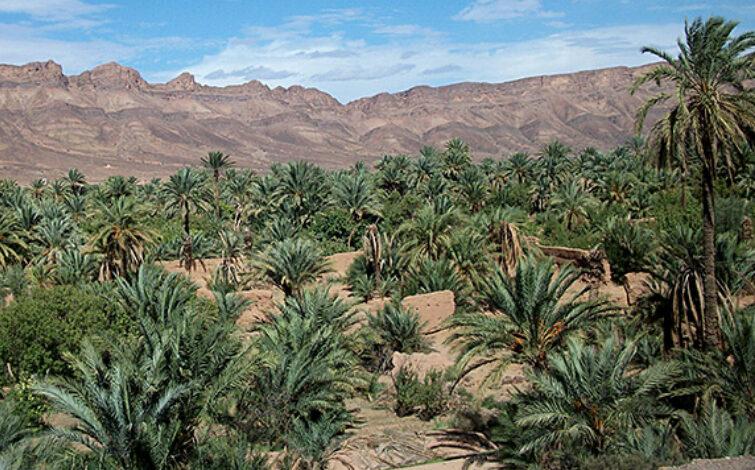The Moroccan government has launched a series of initiatives to address the severe water scarcity affecting the oases and to support small-scale farmers in Zagora province, one of the regions most impacted by drought and declining water levels.
Between 2023 and 2025, a total budget of 391.1 million MAD has been allocated for a range of projects and programs. Among them is the hydro-agricultural development program, which includes the rehabilitation of large-scale irrigation networks over 66 km, and the restoration of small and medium irrigation systems (soughs and khettaras) over 130 km.
Improving Water Supply for Farmers
In 2024, two boreholes were drilled, and six boreholes and one well were equipped with solar-powered pumping systems. For the current year, the government has planned the drilling of six new boreholes and equipping 22 boreholes and wells with solar systems.
To protect the oases from wildfires, the government has launched a set of measures including the rehabilitation of irrigation channels, the clearing of dry palm nests, the distribution of palm seedlings, and the development of 16 km of rural tracks within the Ternata oasis.
Groundwater Recharge and Flood Damage Repair
An agreement has been signed between all stakeholders in the water sector to carry out artificial groundwater recharge works in the Drâa and Maider basins over three years (2023–2025), with a target of 50 recharge weirs. As of now, 52% of the work has been completed.
To address flood-related damage in the Drâa oases, the plan includes the construction of 11 recharge weirs and 7 diversion dams, the repair of damaged khettaras and soughs over 18 km, and the rehabilitation of 16 km of rural roads and technical infrastructure.
Animal Feed and Drip Irrigation Support
As part of relief measures, 45,000 quintals of subsidized barley were distributed to farmers in 2024, and the same quantity has been made available for 2025.
Significant progress has been made in the adoption of water-saving irrigation technologies, with 23,332 hectares equipped with drip irrigation systems, benefiting 4,719 farmers. The government has contributed approximately 1.21 billion MAD to these efforts through the Agricultural Development Fund.
Ongoing Efforts Under the Green Generation Strategy
As part of the national Green Generation 2020–2030 strategy, which aims to build agricultural resilience to climate change, the Ministry of Agriculture plans to continue and expand these efforts in the future. The regional agricultural investment office in Ouarzazate is playing a key role in implementing these interventions, which focus on water resource mobilization, infrastructure development, oasis preservation, and farmer support in the Zagora region.

